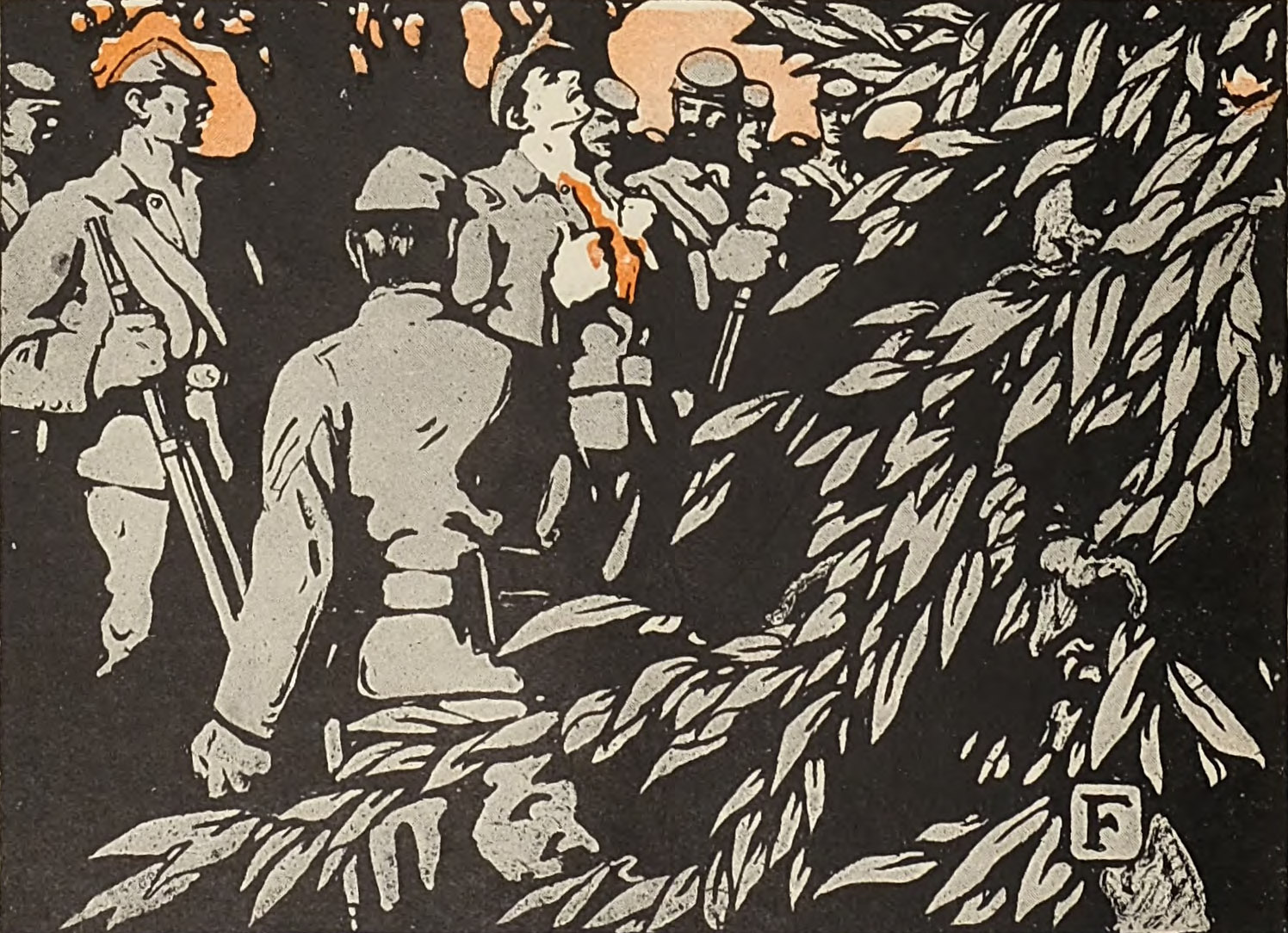“A Baffled Ambuscade” and “Two Military Executions”
From Ambrose Bierce: The Devil’s Dictionary, Tales, & Memoirs

For twenty-two years, Ambrose Bierce worked for William Randolph Hearst, who hired him as chief editorial writer for the San Francisco Examiner. Between 1887 and 1899 Bierce published 469 “Prattle” columns, topical pieces that made him famous, feared, and often despised on the West Coast. Hearst gave him free rein over his content—not to mention, by the end of the century, a steady income of $100 a week.
When Bierce moved to Washington, D.C., in 1899, he sporadically continued to submit articles to the Examiner and to another Hearst paper, the New York Journal, although he and the editors didn’t see eye to eye on what was newsworthy. One of Bierce’s regular readers asked why his output had declined, and he responded, “I am not writing much just now. I ‘threw up my job’ of ‘Prattle’ because Mr. Hearst let his fools, fakers and freaks do what they would with it in the N.Y. Journal—the which I could nowise abide. They yellowed it every way they knew how, and mangled it at will.”
When Hearst purchased Cosmopolitan in 1905, he convinced Bierce to move his talents to the magazine side of the business, and Bierce eagerly accepted the opportunity to publish more substantial, enduring work. The editors, however, initially seemed to desire more of the same—a monthly version of his “Prattle” columns, so to speak—and he quickly believed they were setting him up to fail: If he continued to write pieces on current events, his column would be seen as stale. “How can one discuss with heart or inspiration a thing that happens two months or so before one’s comments on it will be read?” Bierce complained to a friend. “They don’t give me much of a ‘show’—the editor doesn’t love me personally as he should, and lets me do only enough to avert from himself the attention of Mr. Hearst.” To Hearst, he wrote that “a few trials confirmed my notion that one can’t make a daily newspaper out of a magazine: all the attempts of the other magazines to do so I find to be lamentable failures.”
Often at a loss as to how to fill up the pages of his magazine column, he occasionally chose to write fiction instead. For the November 1906 issue, he reimagined personal Civil War experiences as tales of the supernatural and published them under the heading “Soldiers and Ghosts.” We present both of those stories, “A Baffled Ambuscade” and “Two Military Executions,” as our Story of the Week selection.



